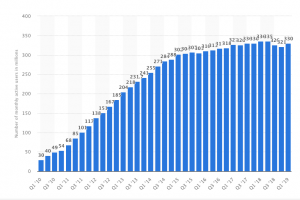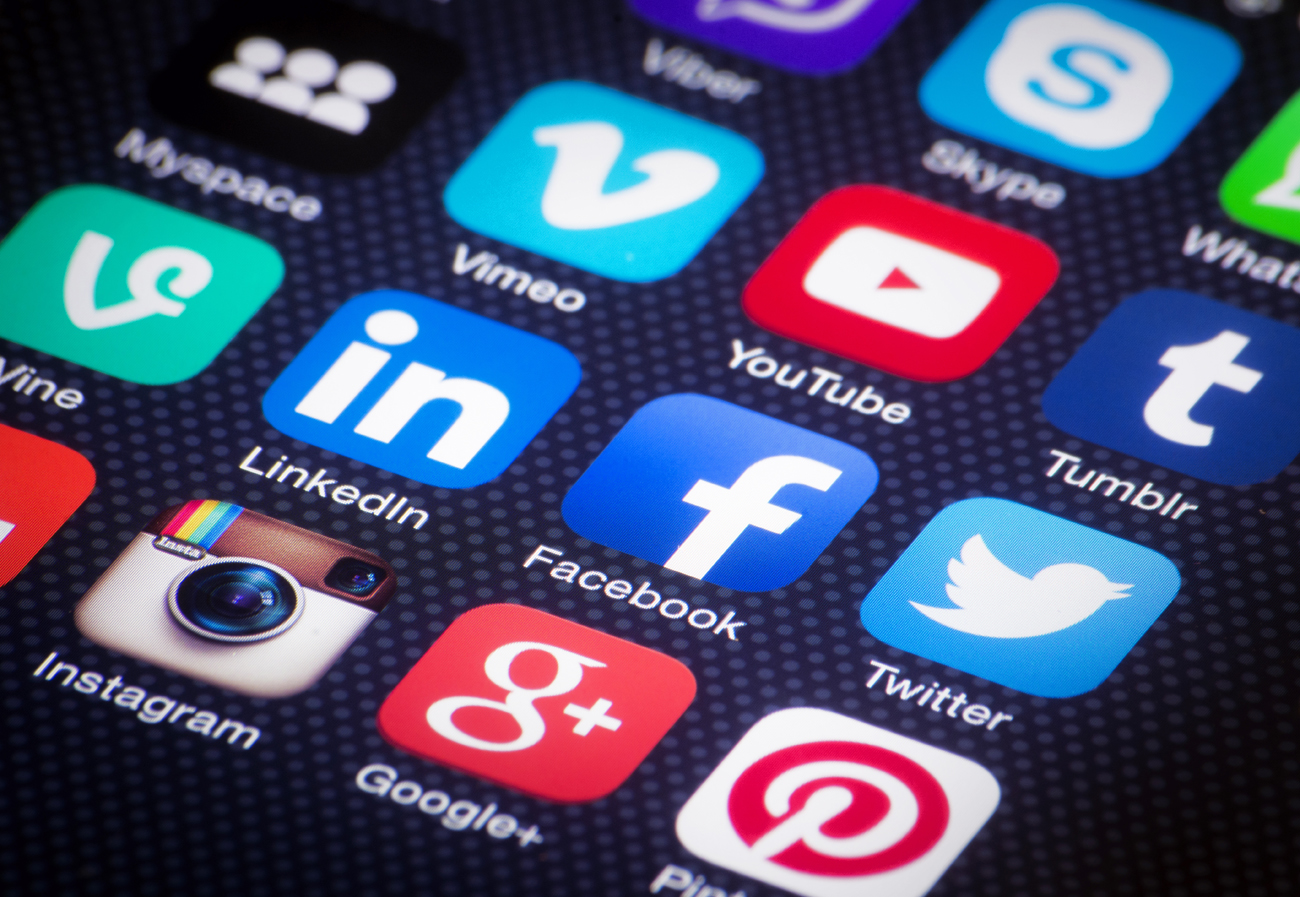The online community and engagement in it have drastically increased in the past few years. The rapid increase of active users of Twitter and other online communities such as Reddit and Tumbler are proof of this growth.

Number of monthly active Twitter users worldwide from 1st quarter 2010 to 1st quarter 2019 (in millions)
The increase in the number of smartphone users, the decrease of the age of the average user and increase in phone apps that engage with online communities, whether it be on public or private forums, dating sites, or social media has directly affected these numbers. I believe online anonymity which was one of its attractions, has led to a level of toxicity in these communities.
One of the issues I experienced, and heard complaints of was the use of fake profiles/personas on dating sites and other forums that were used to scam or troll other users.
With a younger community of users joining the online community. I decided to address this issue by reaching out to several legislative representatives. While I strongly believe that the tech industry should take steps to regulate themselves I feel, that there is a conversation that needs to be had about how we engage and manage our online presence to create a safer online environment.
The following is a portion of my correspondence with several congressional and Senate members.
Understanding the issue
I want to draw your attention to an issue that I believe hasn’t been addressed due to its nature, or the stigma associated with it.
A large part of my generation and generations after me are resorting to the internet to meet people and to interact with people. No longer is this limited to dating sites, the newer generation of platforms for social interaction range from what’s referred to as flirting apps, meet up apps and dating apps that are varied in their nature.
One common factor in all these apps and sites are the presence of scammers who misrepresent who they are and their intentions. They create false profiles and personas to take advantage of the emotional weaknesses of people. While some of these are commercial scammers others are engaging in what’s commonly called catfishing.
According to the FBI, “In another recently reported dating extortion scam, victims usually met someone on an online dating site and then were asked to move the conversation to a particular social networking site, where the talk often turned intimate. Victims were later sent a link to a website where those conversations were posted, along with photos, their phone numbers, and claims that they were “cheaters.” In order to have that information removed, victims were told they could make a $99 payment—but there is no indication that the other side of the bargain was upheld.” (1) “In North Dakota alone nearly $300,000 were stolen last year through romance scams, according to the FBI.”(3)
In many of the other common scams, the person that does show interest in you will carry on a conversation with you until you are emotionally committed. Then they will have you verify who you are on a site where payment is needed by giving you a link to go to and pay with credit/debit cards or use that information to verify yourself.
Another trend that I and others on some of the dating apps (specifically Tinder) noticed was that there were profiles that had a specific age (over or at 18). However, in their profile description is says “That’s Not my real age”. Shouldn’t such a profile be removed or investigated? It’s one thing to conceal your real age on a dating site, but these sites are for adults and what steps are the site and app creators doing to implement such a restriction?
These scammers and perpetrators take advantage of the vulnerability and loneliness of people who are longing for contact and engagement with other people.
In my opinion, it comes down to the fact that on a platform specifically designed for romantic encounters we are never sure of the person we are interacting with. I am not referring to just the fact that it might not be a real person or that it might be an automated system. It’s more in regards to, if this person is the age that they say they are, the gender they say that they are and that their intentions are honest. Shouldn’t a user have some accountability to how they act and what they say on dating sites or other online platforms?
Age would not be an issue when people are known to make themselves younger in most dating sites, but with the wide use of mobile phones and phone apps how can we verify the age of the person who you are in contact with as an adult? With a person only needing an email address to sign up and create a profile, there is no accountability for one’s actions on dating sites.
The current solution provided is to report such profiles on dating sites, but this would only be effective if you are overly cautious and vigilant. if not, it is always too late and the profiles are removed or changed.
Proposed solution
As far as online interactions that progress into real-world interactions go, Airbnb was the other service I’ve used recently. If you are not familiar with this service, regular individuals rent out a room or their houses to complete strangers. They meet online through the Airbnb site and welcome them into their home. This service is facilitated by Airbnb. This service is widely used by budget travelers to businessmen/women. They faced the same security and safety concerns as dating sites.
How Airbnb got around this concern was by having their users, whether it was a person hoping to rent out a room, or a person who is wanting to rent a room validate whom they were by scanning /uploading their driver’s license and a profile picture that matches, to their site.
“The new “Verified ID” service will use offline and online services to verify the user’s identity. For the offline portion, users can upload a photo of their driver’s license or passport. (Airbnb is using a company called Jumio to verify these offline ID’s.) Or users can confirm personal historical data about themselves.” (2)
If this same method was used to verify oneself on a dating app/site, there is a certain level of accountability to how you conduct yourself and act on these dating apps/sites. While I understand the allure of anonymity online, I don’t believe that when it comes to dating sites/apps this should be the case.
Finally, should there also not be some level of accountability and responsibility on the part of the service providers to make sure that they create a safe environment for the many individuals who are searching for companionship?
I understand that there are privacy concerns in regards to the handling of private data such as your driving license information. If this data is handled responsibly adhering to data compliance and regulations, I think the benefits outway the possible risks. Furthermore, this gives users the option of choosing a secure service.
I know that you have fought for the removal of the adult category on Backpage.com as it was being used as a platform for solicitation. One of the biggest dangers outside of the human trafficking factor has been the issue of possible minors engaging in the solicitation. This would make these website administrators accountable for providing such a platform and make the users accountable for their own actions.
Even with the removal of the adult category on Backpage.com, and the complete shutdown of backpage.com, there exists a dating category similar to ones found on Craigslist.com. If these sites offer such services they should be held accountable. They should do what is within their power to verify and protect the interactions of the users that use these apps and sites.
Conclusion
I understand that this issue might seem trivial in its nature, but I believe that it is still an issue that needs to be addressed. As younger generations start using mobile phones, the generation of users online are getting younger and we need to find sensible ways to protect the freedoms afforded to us and the services offered to us online.
We also need to take in to account how society is changing, where interactions online become more common and the internet becomes a platform for social interaction.
Thank you for your time.
Citations.
- “FBI Warns of Online Dating Scams.” FBI, FBI, 11 Feb. 2016, fbi.gov/contact-us/field-offices/sandiego/news/press-releases/fbi-warns-of-online-dating-scams.
- Geron, Tomio. “Airbnb Adds Identity Verification To End Anonymity In Sharing Economy.” Forbes, Forbes Magazine, 10 July 2013, forbes.com/sites/tomiogeron/2013/04/30/airbnb-adds-identity-verification-in-big-step-for-sharing-economy/#4a2a74bc69c5.
- Johnson, Nicole. “Lonely Looking for Love? You’re a Prime Target for Scam Artists.” KVLY – Content – News, valleynewslive.com/content/news/Lonely-looking-for-love-Youre-a-prime-target-for-scam-artists-435019063.html.
